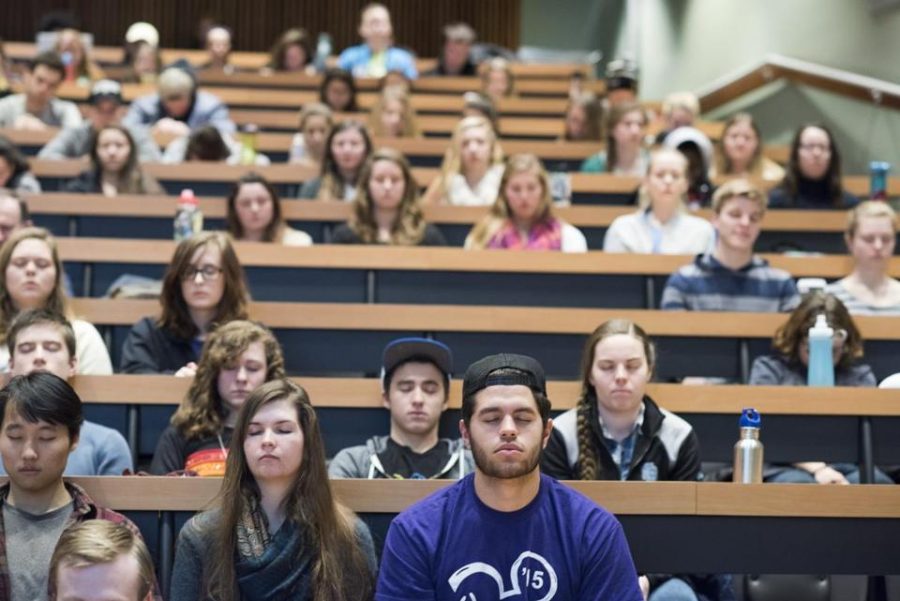Wellness Wednesday sparks debate
October 1, 2019
Sources of Strength (SOS) days have been replaced by once a week, 20 minute periods of wellness. Both were an attempt at fixing the incredible mental health crisis now plaguing students, but neither have helped or will help ease any anxiety in teens as a result of schoolwork stress — in fact, they will do just the opposite.
When WCHS had SOS days, student attendance was remarkably low, and student participation was even worse. The day incorporated yoga, meditation, and talks about ways to ease stress. But while the administration rallied behind this day, student stress became heightened, as tests and quizzes came earlier, class time for questions and work became shorter, and the amount of availability students had to talk to their teachers regarding anything causing them stress became nearly nonexistent. Furthermore, one day of meditation as an attempted solution for an anxiety epidemic showed how little our school understood about mental health treatment and proper fixes.
Fortunately, this year, that day was removed. Unfortunately, it was replaced with something arguably more stressful. Wellness Wednesdays are a good idea in theory. Regular stress reduction attempts are shown to be much more beneficial than attempts orchestrated only once every nine weeks. However, Wellness Wednesdays do not solve any of the students’ issues when it comes to stress and anxiety; their level of stress is only increased.
According to Psychology Today, “interacting with others boosts feelings of well-being and decreases feelings of depression.” Wellness Wednesdays take away time from lunch- a crucial social opportunity for students that serves as their one break during the school day. One of the great things that WCHS does for the students is the 55 minute lunch period. Making this period shorter shows little regard for students’ social health.
In some classes on Wellness Wednesday, the teacher may choose to do an activity involving socialization. However, forced conversations are not nearly as helpful for mental health as conversations with people of whom you choose to talk to- these forced conversations may even cause some students increased anxiety.
Medical News Today found that “people who spend more time interacting and have more meaningful, substantive conversations are more satisfied.” Students are much more likely to have real conversations with close friends rather than with random students in one of their classes. Lunch as a social tool does much more to help students with their social and mental health than a 20 minute block full of small talk does.
Furthermore, students use lunch as a time to get help from their teacher on anything they were confused about in class. Wellness Wednesday puts students at a disadvantage academically, even if it is just for one day a week. Many students go in daily to their teachers, and many teachers have limited office hours. By shortening lunch, this also restricts the amount of time a student can spend with a teacher at lunch.
Another issue academically with Wellness Wednesdays is the testing/quizzing schedules. Due to the policy that there can be no tests or quizzes on Wednesdays, teachers often move the assignment dates up instead of back, as they are on a very tight schedule. All this does is eliminate days that teachers are able to give assignments, putting more on the same day, and therefore adding to the stress of students.
While there may be fewer assignments on the same day than in years prior, thanks to the testing schedule put in place per subject, very few teachers follow said schedule and the ones that do only had to adhere to it with regards to summative assignments. Quizzes and graded classwork could still be any day of the week, thereby spreading out these stressful periods more so than a week incorporating Wellness Wednesday.
WCHS’s efforts to increase mental health in its students are great- the administration and SGA’s push for more advocacy and change is well noted. When coming up with ideas for how to best go about this, the impacts of any change to the schedule that mess with testing, lunch, or students’ time to socialize should be considered instead of blindingly creating a facade to look like they care.


